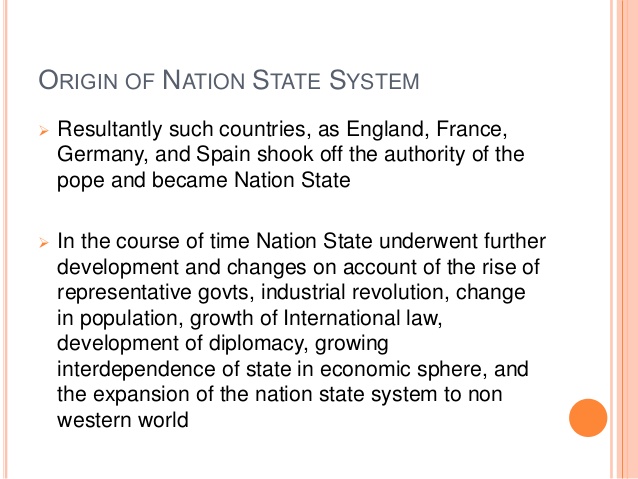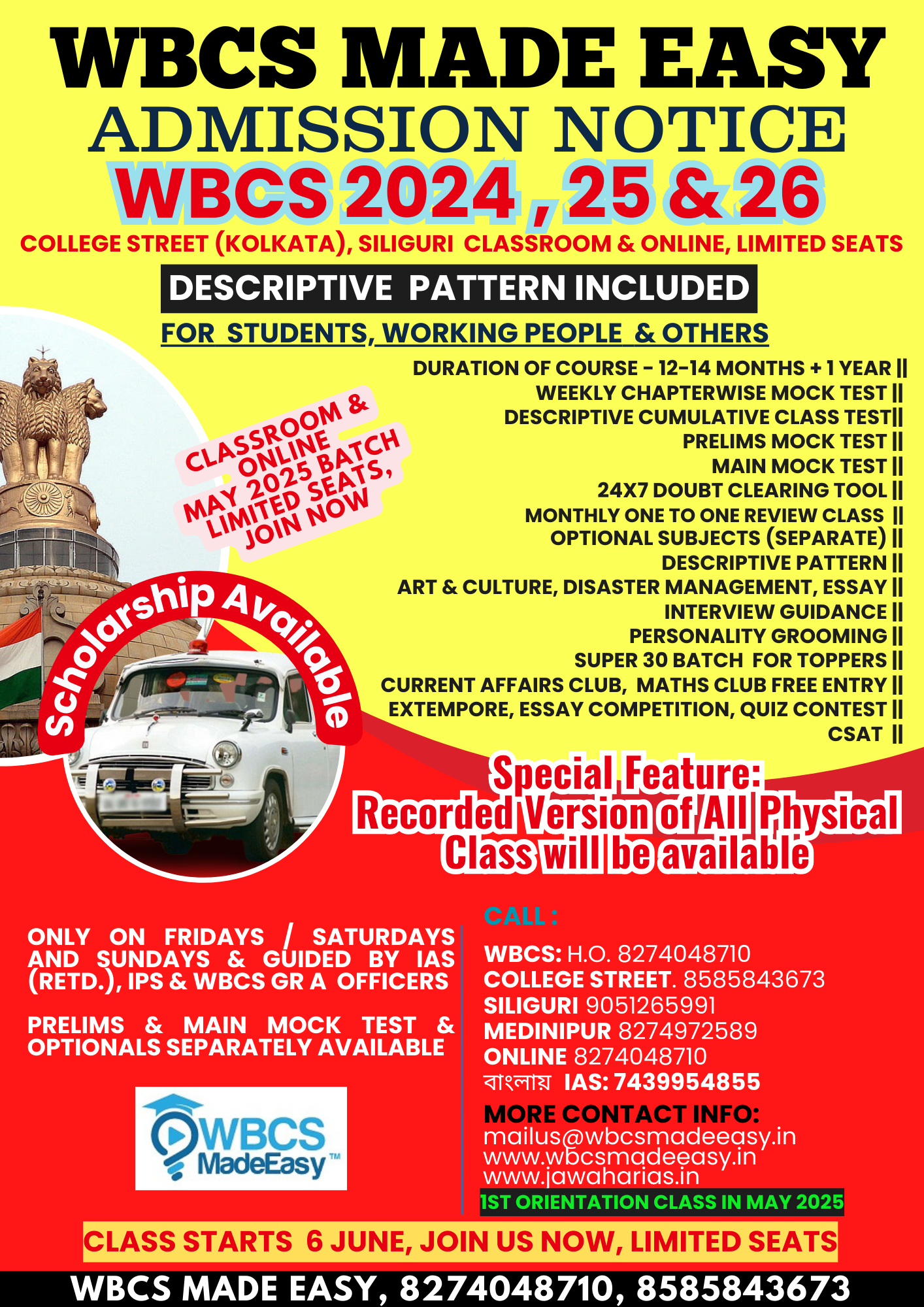Concept Of Nation State – Anthropology Notes For – W.B.C.S. Examination.
নেশন স্টেটের ধারণা – নৃবিদ্যা নোট – WBCS পরীক্ষা।
What is the Nation State?
When we talk about the nation state, we are really talking about three separate things: the nation, the state, and the nation state.Continue Reading Concept Of Nation State – Anthropology Notes For – W.B.C.S. Examination.
The nation state is a system of organization in which people with a common identity live inside a country with firm borders and a single government. That wasn’t so bad, right? But what does it all mean? The nation state has a dramatic influence on the way we live our lives. It’s how we identify ourselves. I’m American. I’m Russian. I’m Antarctican. (Okay, that last one isn’t a thing.) It also determines what language we speak, what laws we follow, and what holidays we celebrate. Cinco de Mayo? Boxing Day? Fourth of July? The nation state is a system of political, geographic, and cultural organization, and it is one of the most important parts of your life that you don’t think about. The nation state is held together by its physical boundaries, its government, and the fact that the people believe they are connected to each other.
The Nation and the State
The nation, on the other hand, is the people. The nation is created by a shared belief that the people inside a country are connected to each other. Whether you live in Cleveland, Denver, or San Francisco, you still share a connection with other Americans. The idea that people of a nation are connected to each other is called nationalism.The fundamental parts of the nation state are the nation and the state. Let’s start with the state. In the broadest of terms, the state is a body of government. All the rules and laws, the government officials and their titles, the physical boundaries and those who define them – these make up the state. The state is what makes a country run from a political, practical standpoint.
Nation states must also have a shared national culture. This is often achieved through common language, history, holidays, and education. Sometimes national culture is a result of similar people living in the same area. In the United States, the colonists began developing a unique national culture, which led to them declaring war against England and creating their own government and state.
On the other hand, sometimes the nation state begins as a government and later has to try and create a national culture. For example, when Mexico became independent from Spain, the country was too large and fragmented for the people to have developed a national culture. There were dozens of different identities. It took nearly a century for the Mexican government to develop a sense of ‘Mexican-ness’, or Mexicanidad in Spanish.
The government had to carefully, and intentionally, select the moments from history that all Mexicans could unite around. They had to control language, education, and holidays to make sure that all Mexicans celebrated the same national culture. Sometimes this meant violent oppression of the people who weren’t cooperating. However, the government knew that without a national culture, the nation state had no real power, and it would fall back into war and chaos.
Before the Nation State
There have been different kinds of states in history, other than the nation state. For example, in 15th-century Italy, the independent body of government was centered on a city. These were called city-states. City-states were based on the city, but their power extended beyond the city limits and could change depending on other powers, resources, etc. The nation state, by contrast, has a definite border where its power ends. The United States cannot enforce its laws in Canada.
At one time, kingdoms and empires ruled over lots of very different people who did not see themselves as united or sharing any sort of identity. The transition from kingdoms, empires, and city-states into nation states did not happen everywhere in the world at the same time, or in the same way.
History of the Nation State
However, other scholars have also noted that the early nation states coincided with new map-making technologies from the age of exploration and discovery in the 1500s, when European merchants began sailing around the world for the first time. Better maps and technology to move people and goods changed the way that people, particularly rulers, understood boundaries and borders.Many historians debate the origins of the nation state. The historian Benedict Anderson, author of Imagined Communities, argued that nation states began because of print media, such as newspapers, when the rise in literacy and new technologies like the printing press between 1500 and 1600 let people talk to each other in new ways. They discussed their similarities and ideas through the press, and this meant that they had to share a common language. They began to form the early versions of national identities. Anderson’s argument is still the most commonly held belief by historians.
Our own publications are available at our webstore (click here).
For Guidance of WBCS (Exe.) Etc. Preliminary , Main Exam and Interview, Study Mat, Mock Test, Guided by WBCS Gr A Officers , Online and Classroom, Call 9674493673, or mail us at – mailus@wbcsmadeeasy.in
Visit our you tube channel WBCSMadeEasy™ You tube Channel
Please subscribe here to get all future updates on this post/page/category/website



 +919674493673
+919674493673  mailus@wbcsmadeeasy.in
mailus@wbcsmadeeasy.in






































































































